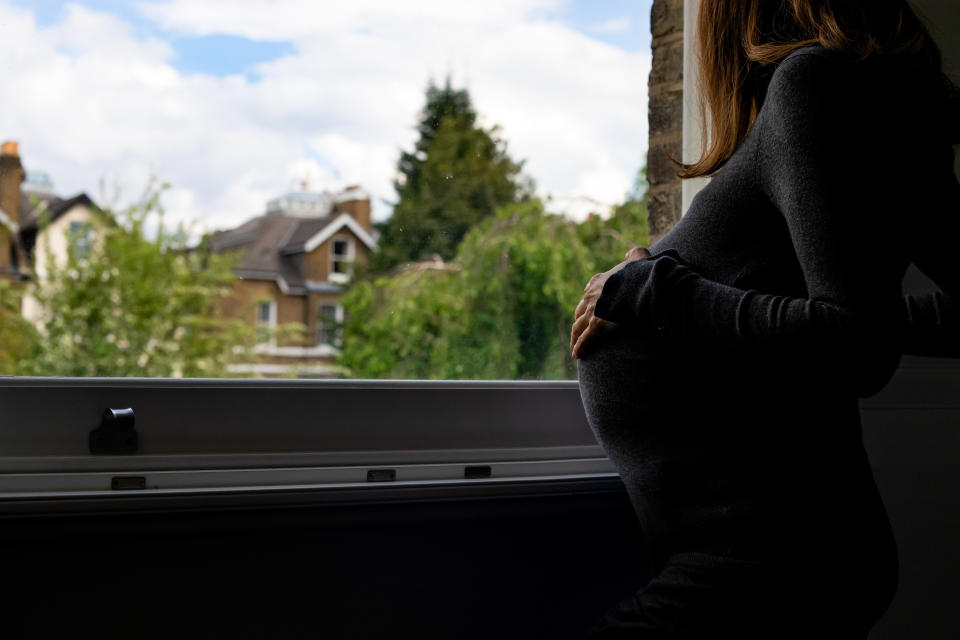Coronavirus: Why the 'motherhood penalty' has been amplified by the lockdown

Coronavirus has affected more than our health. Around the world, millions of people have been furloughed, made redundant or lost their incomes. In the UK, one in 20 people have lost a job because of COVID-19, according to a YouGov poll. Almost one in 10 have seen their hours reduced, leaving them struggling to pay rent, bills and put food on the table.
Women – and in particular mothers – are disproportionately experiencing a financial burden. School closures, massive rates of job loss and furloughing, as well as a shift to working from home, are all affecting how parents are dividing responsibilities for paid work, housework and childcare.
We already know that women tend to automatically shoulder duties in the home, in a phenomenon coined “the second shift” by sociologist Arlie Russell Hochschild. And with much of our lives now taking place at home under the current lockdown, the problem has become amplified.
So to what extent has the pandemic exacerbated the “motherhood penalty” – and why?
To find out more about the impact of the current crisis on mothers, the Institute for Fiscal Studies and the UCL institute of education interviewed 3,500 families of two opposite-gender parents. The results showed that mothers in England are more likely than fathers to have lost their jobs during the lockdown - and were also doing more childcare and housework too.
READ MORE: Why coronavirus is fuelling an economic crisis that will hit women the hardest
The IFS-UCL study showed that mothers are 23% more likely than fathers to have lost their jobs, either temporarily or permanently, during the current crisis. Of those who were in paid work prior to the lockdown, mothers are 47% more likely than fathers to have permanently lost their job or quit.
Working mothers have also had their working hours reduced substantially, the survey found. Before COVID-19 hit, women with children did paid work for 6.3 hours of a weekday on average, which has fallen to 4.9 hours.
"Mothers are more likely than fathers to have moved out of paid work since the start of lockdown. They have reduced their working hours more than fathers even if they are still working and they experience more interruptions while they work from home than fathers, particularly due to caring for children,” said Alison Andrew, a senior research economist at IFS.
“Together these factors mean that mothers now are only doing a third of the uninterrupted paid-work hours that fathers are. A risk is that the lockdown leads to a further increase in the gender wage gap.”
Among those doing paid work at home, the IFS-UCL survey showed, mothers are more likely than fathers to be spending their work hours trying to care for children. The mothers interviewed were looking after children for an average of 10.3 hours a day – 2.3 hours more than fathers – and doing housework for 1.7 more hours than fathers.
READ MORE: Why it’s normal to feel irritable when working from home under lockdown
In families where the father had stopped work while his partner continued, on average they did the same amount of household work – while the woman did an average of five hours of paid work a day.
The systematic disadvantages mothers face in pay and career prospects exist because of enduring gender stereotypes, many economists and sociologists argue. Despite public policy efforts to encourage shared parental leave, women are still being left behind in the workplace – and the current crisis is widening the equality gap further.
The economic fallout of the crisis is taking an emotional toll on women, too. According to recent research by Ipsos MORI and The Fawcett Society, six out of ten women are finding it harder to stay positive day-to-day, compared with 47% of men. When asked in March whether they thought the economic conditions of the country will improve or get worse, women were much more likely to think conditions would get worse than men.
“Women are bearing the brunt of the emotional and financial fall out. Government needs to take a gendered approach as we lift the lockdown and begin to turn our attention to how we emerge from this crisis,” said Sam Smethers, chief executive of the Fawcett Society. “One thing is certain, an economy which leaves women and girls behind will fail to recover at all.”

 Yahoo Finance
Yahoo Finance 
